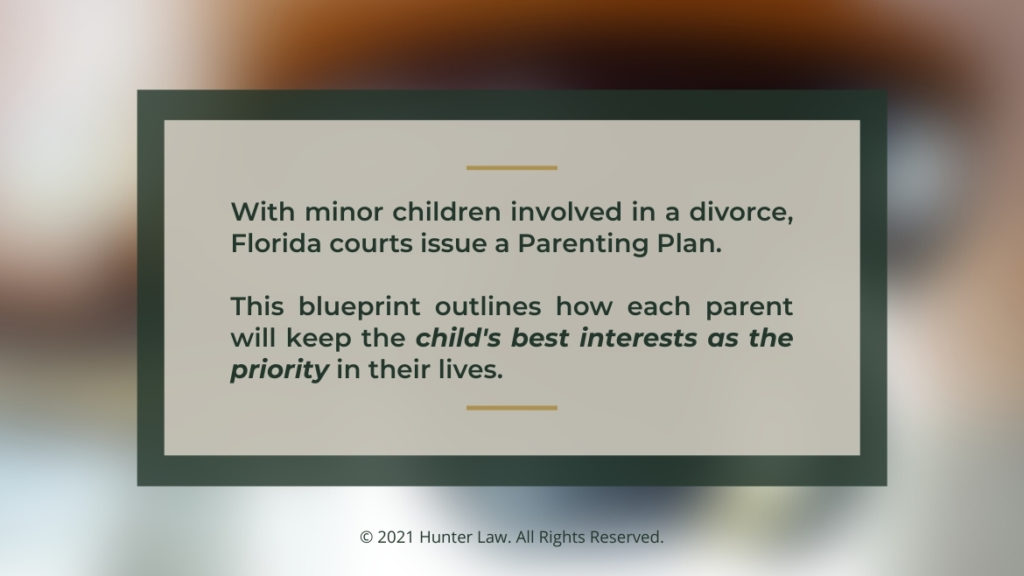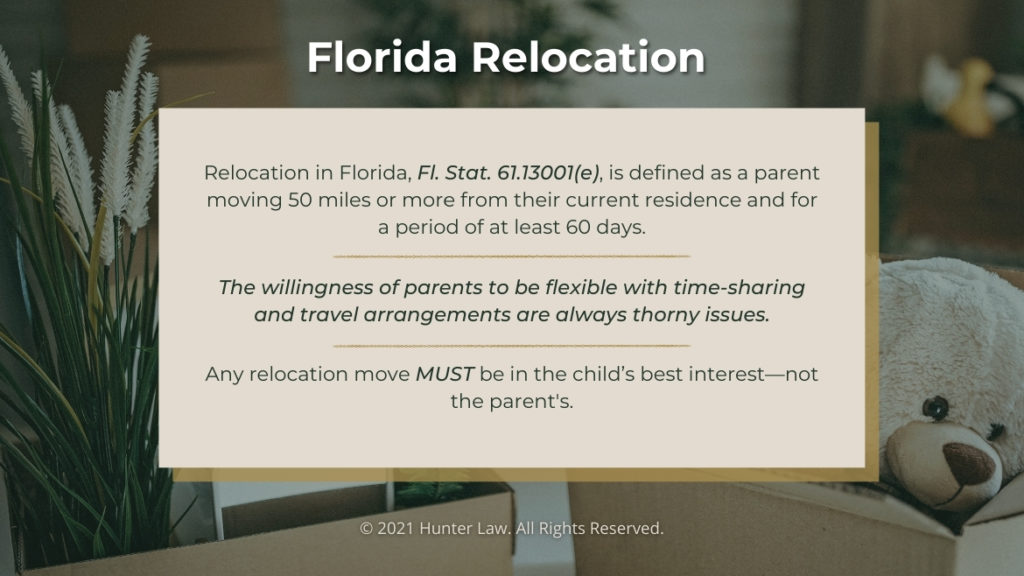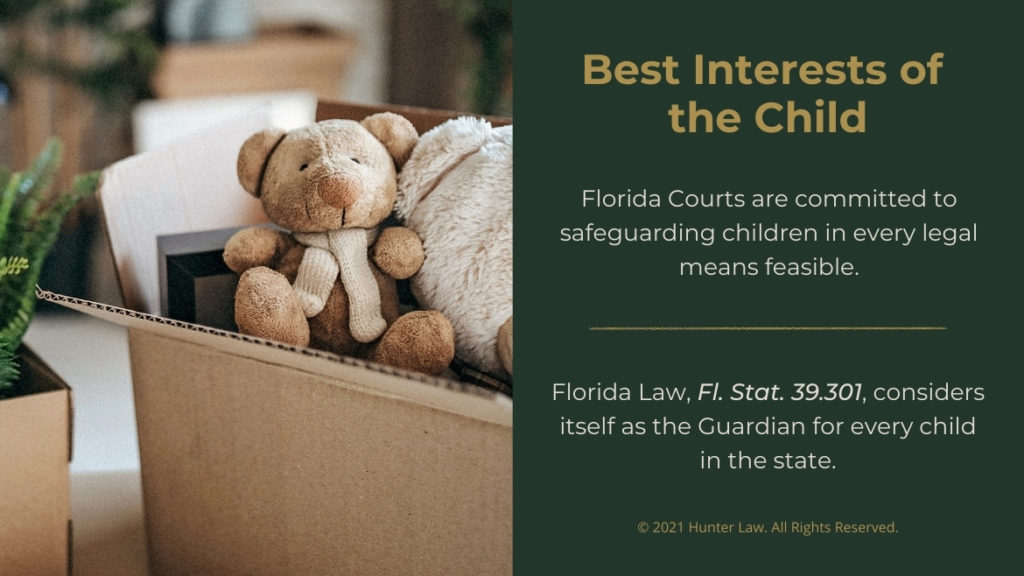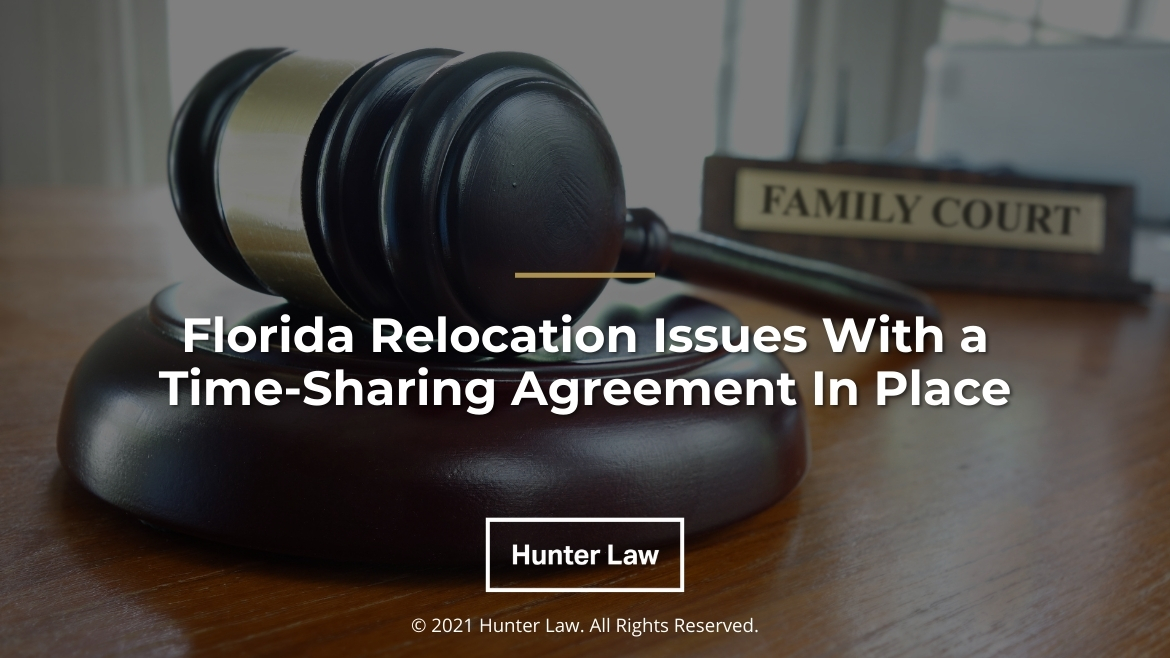Current divorce rates in America are 2.9 persons for every 1000 people, with over 750,000 divorces each year. Florida has the fourth-highest rate at 13.2%. The causes for these astronomical percentages are as diverse as the people involved. Florida relocation issues with a time-sharing plan in place need skilled attorneys with Family Law.
A significant tragedy of divorce is the lingering effects on children. Roughly every 1 in 2 children will grow up with a single parent. Another disgrace, children between the ages of 7 and 14 are likely to have behavioral issues. Children with divorced parents are twice as likely to drop out of high school.
Tragedy on the children of divorce continues to worsen as they move toward adulthood.
Florida Courts and Family Law Attorneys work hard to ensure a child’s well-being is cared for in all circumstances. Newly single parents with a strong understanding of responsibility often find relocating for a job opportunity or upgraded housing may serve their family better.
“The demonstrated capacity and disposition of each parent to facilitate and encourage a close and continuing parent-child relationship, to honor the time-sharing schedule, and to be reasonable when changes are required.”
With minor children involved in a divorce, Florida courts issue a Parenting Plan. This blueprint outlines how each parent will keep the child’s best interests as the priority in their lives. Hunter Law makes certain every stage of a child’s life is handled with compassion by both parents.
Key Steps for a Successful Florida Parenting Plan

Skilled attorneys at Hunter Law are uniquely qualified to handle the complexities of a Florida Divorce, including the Parent Plans and Time-sharing schedules. If a parent wants to relocate without trauma to your child, contact Us at once. (813) 287-2227
Within the Parenting Plan is a time-sharing agreement. However, there is no one-size-fits-all time-sharing schedule. As one might expect, schedules are simple to agree on when everyone sits calmly in a room. Once the required meetings are done with, life steps in, and issues begin to mount.
The Uniform Child Custody Jurisdiction Enforcement Act (UCCJEA) is significant legislation that directly impacts which state has jurisdiction to hear a case. It is important to note that the UCCJEA determines which court has jurisdiction, it does not dictate relocation, which is state-based and controlled by Florida Statute 61.13001.
UCCJEA was designed to prevent parental interstate kidnapping. Also, until Florida or the HOME state affirmatively relinquishes its jurisdictional hold, under the UCC JEA, no other state can enter a new custody order.
Florida Relocation
Relocation in Florida, Fl. Stat. 61.13001(e) is defined as a parent moving 50 miles or more from their current residence. The move must be for at least 60 days. Florida courts will not allow a parent to relocate for an extended vacation, education, or medical care. The willingness of parents to be flexible with time-sharing and travel arrangements is always a thorny issue.
Any relocation move MUST be in the child’s best interests, not the parent’s.
Hunter Law (813) 287-2227

Florida takes moving and relocating its children seriously. Parents must have a signed agreement spelling out the terms of any relocation. Agreements must include:
1 Both parents agree to the move
2 Time-sharing plan for the non-relocating parent.
3 Transportation arrangements for child visitation.
As one might expect, parents who have a strong bond with their children will not give up visitation rights easily. If an agreement cannot be reached, the relocating parent must file a Petition to Relocate Fl. Stat. 61.13001(3) with the court and serve the other parent.
Issues abound when serving parents with petitions. These types of actions will not sit well and may incur harsh answers. The non-relocating parent must hire skillful attorneys with extensive Family Law Practice to arrange a legal response. The family law attorneys at Hunter Law are ideally suited to deal with every facet of parental relocation issues.
If there is no response, courts will enter an order approving the relocation. If there is a response, the courts will set an evidentiary hearing or a non-jury trial.
Florida parents are taking the issue of relocation with their child to the extremes stating: their fundamental right to travel is being tampered with. Florida Courts have consistently ruled that it does not.
Interesting Florida Case Law, 2009 to Present
Krift v. Obenour – The relocation statute was inapplicable when the order to change residence when the child reached kindergarten age. The parenting plan in the amended final judgment does not involve “relocation,” as defined, but instead orders the father to become the primary residential parent once the child begins kindergarten.
Arrabal v. Hage – The mother was the residential parent, and the father lived out of state. The 2008 relocation statute did not apply because the father requesting residential modification was not relocating his residence but asking to change the child’s primary residence to the father’s existing home in Maryland.
Feltzer v. Evans – The wife failed to prove the relocation was in the best interests of the child. The evidence established that after the former husband and his fiancée left their jobs in California to move to Florida to be closer to the child, the former wife and her husband moved out of state, with minimal notice to the former husband and over his objection.

Best Interests of The Child
Florida Courts are committed to safeguarding children in every legal means feasible. Parenting Plans designate who is responsible for healthcare, school, and extracurricular activities.
Issues of every sort come into play when parents do not step to their moral and legal requirements of caring for their children. Florida Law, Fl. Stat. 39.301 considers itself as the Guardian for every child in the state.
Hunter Law will fight for your family when faced with a custody or relocation issue! Call Hunter Law today – (813) 287-2227


